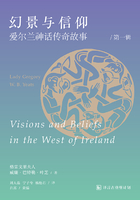However, if I had to choose between the notion of the moral sense and that of perfection in general (two systems which at least do not weaken morality, although they are totally incapable of serving as its foundation), then I should decide for the latter, because it at least withdraws the decision of the question from the sensibility and brings it to the court of pure reason; and although even here it decides nothing, it at all events preserves the indefinite idea (of a will good in itself free from corruption, until it shall be more precisely defined.
For the rest I think I may be excused here from a detailed refutation of all these doctrines; that would only be superfluous labour, since it is so easy, and is probably so well seen even by those whose office requires them to decide for one of these theories (because their hearers would not tolerate suspension of judgement).
But what interests us more here is to know that the prime foundation of morality laid down by all these principles is nothing but heteronomy of the will, and for this reason they must necessarily miss their aim.
In every case where an object of the will has to be supposed, in order that the rule may be prescribed which is to determine the will, there the rule is simply heteronomy; the imperative is conditional, namely, if or because one wishes for this object, one should act so and so: hence it can never command morally, that is, categorically. Whether the object determines the will by means of inclination, as in the principle of private happiness, or by means of reason directed to objects of our possible volition generally, as in the principle of perfection, in either case the will never determines itself immediately by the conception of the action, but only by the influence which the foreseen effect of the action has on the will; I ought to do something, on this account, because I wish for something else; and here there must be yet another law assumed in me as its subject, by which I necessarily will this other thing, and this law again requires an imperative to restrict this maxim. For the influence which the conception of an object within the reach of our faculties can exercise on the will of the subject, in consequence of its natural properties, depends on the nature of the subject, either the sensibility (inclination and taste), or the understanding and reason, the employment of which is by the peculiar constitution of their nature attended with satisfaction. It follows that the law would be, properly speaking, given by nature, and, as such, it must be known and proved by experience and would consequently be contingent and therefore incapable of being an apodeictic practical rule, such as the moral rule must be. Not only so, but it is inevitably only heteronomy;the will does not give itself the law, but is given by a foreign impulse by means of a particular natural constitution of the subject adapted to receive it. An absolutely good will, then, the principle of which must be a categorical imperative, will be indeterminate as regards all objects and will contain merely the form of volition generally, and that as autonomy, that is to say, the capability of the maxims of every good will to make themselves a universal law, is itself the only law which the will of every rational being imposes on itself, without needing to assume any spring or interest as a foundation.
How such a synthetical practical a priori proposition is possible, and why it is necessary, is a problem whose solution does not lie within the bounds of the metaphysic of morals; and we have not here affirmed its truth, much less professed to have a proof of it in our power. We simply showed by the development of the universally received notion of morality that an autonomy of the will is inevitably connected with it, or rather is its foundation. Whoever then holds morality to be anything real, and not a chimerical idea without any truth, must likewise admit the principle of it that is here assigned. This section then, like the first, was merely analytical.
Now to prove that morality is no creation of the brain, which it cannot be if the categorical imperative and with it the autonomy of the will is true, and as an a priori principle absolutely necessary, this supposes the possibility of a synthetic use of pure practical reason, which however we cannot venture on without first giving a critical examination of this faculty of reason. In the concluding section we shall give the principal outlines of this critical examination as far as is sufficient for our purpose.















